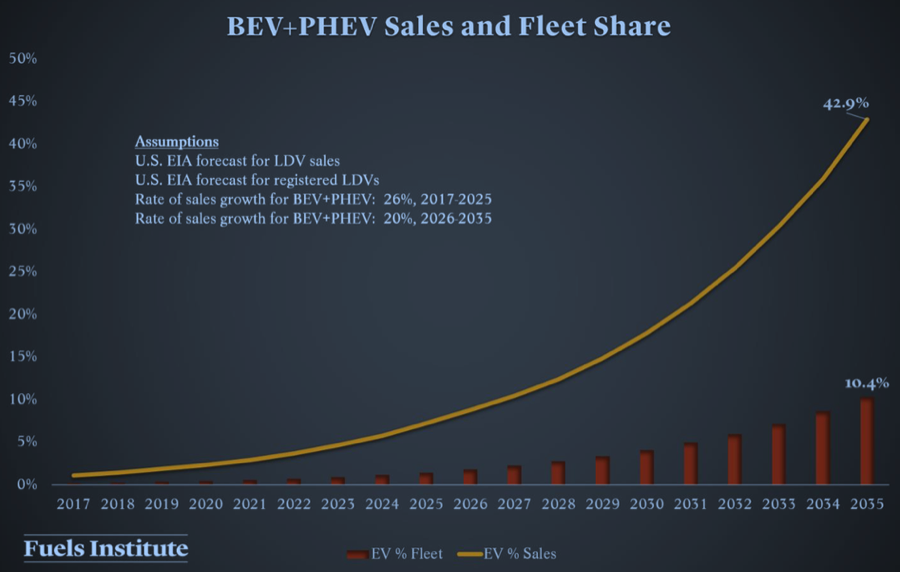March 8, 2018
On March 7, the House Subcommittee on the Environment held a hearing addressing the future of transportation fuels and vehicles. Subcommittee members expressed many concerns about the current state of transportation fuel economy, noting that transportation has taken the lead in greenhouse gas emissions, and electric vehicles have become an expensive alternative.
(The Environment panel is a subcommittee of the Energy and Commerce Committee, which has jurisdiction over the vehicle safety activities of the National Highway Traffic Safety Administration, as well as over the environment generally.)
The panel included five expert witnesses:
- John Eichberger, Executive Director, Fuels Institute
- John Farrell, Laboratory Program Manager of Vehicle Technologies, National Renewable Energy Laboratory
- Joshua Lin, Senior Fellow, Resources for the Future
- John Maples, Senior Transportation Analyst, U.S. Energy Information Administration
- Jeremy Martin, Senior Scientist, Union of Concerned Scientists
Chairman John Shmikus (R-IL) opened the questioning with a broader discussion as to what the future of fuel and transportation held, asking how gas stations and car dealerships will have evolved in ten years. Eichberger explained that in ten years gas stations will look quite similar, with cars still running largely on gasoline with blended ethanol. He did however note that electric charging stations would become more prevalent. As for car showrooms, the panel agreed that cars would become more efficient and be utilizing hybrid powertrains as much as possible, but they would also look predominantly the same. Mr. Martin noted that people will be buying less cars as ride-for-hire becomes more accessible for day-to-day life.
As for alternative fuels being utilized currently, electric vehicles were a major consideration for the committee. Ranking Member Paul Tonko (D-NY) expressed concern that the government has not invested in the infrastructure necessary to own an electric vehicle. The panel agreed, however also argued that many current owners of electric vehicles find it satisfactory to charge at work and at home without a need for a charging station comparable to a gas station in communities.
Electric vehicles are not appealing to many buyers because of the high expenses for the batteries and for eventual battery replacement. Electric vehicles currently run primarily on lithium-ion batteries, which have serious environmental impacts and are extremely expensive. Cobalt is a potential alternative with less serious environmental concerns, but is even more costly than lithium.
Subcommittee members also expressed concern with the lack of taxation on electric vehicles. Currently, gasoline and diesel taxes go to the maintenance of transportation infrastructure, such as roads and bridges, via the Highway Trust Fund. Because electric vehicles do not use conventional motor fuels, they do not pay this tax. They do however utilize the roads that gas taxes pay for. If electric vehicles become more cost or environmentally effective, Representative Jeff Duncan (R-SC) expressed concern that the funding for road maintenance would be severely diminished.
Eichberger explained in his opening statement that the pace of new technological implementation can be incredibly slow. The problem is “fleet turnover” – most people drive a car for many years after they buy it, and even after they sell it, someone else will buy it used and drive it, so new cars area always an extremely small share of the total U.S. vehicle fleet. Below is a chart from the Fuels Institute showing the rate of sales for electric vehicle sales in terms of market percentage, in yellow, versus the rate of electric vehicles in the entirety of vehicles on the road, in red. Meaning, that in 2035, only 10% of vehicles on the road will be electric.

Subcommittee members expressed mixed views on moving away from combustion engines. Representative Tim Walberg (R-MI) argued that he was partial to combustion engines because of his home state’s history in the transportation industry, as well as his district’s proximity to a prominent NASCAR track. However, Representative Bill Johnson (R-OH) offered the idea that society has had a sort of nostalgia for classic cars, working on cars, and engines for decades. He rationalized to the Subcommittee that moving away from the combustion engine to plug in a car or to let a car drive itself is a serious change from something that society has made a hobby out of, and that could contribute to the slow implementation of alternative fuels on the capitalistic side.




